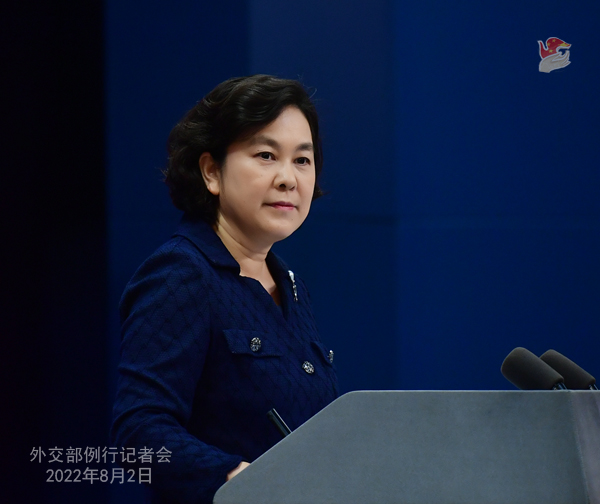AUKUS trio urged to comply with nuclear treaty
By WANG QINGYUN | China Daily Global | Updated: 2022-08-03 09:30

China criticized the nuclear submarine cooperation of the United States, United Kingdom and Australia on Tuesday, and urged the international community to discuss the issue at an ongoing conference so as to uphold the treaty's integrity and effectiveness.
Speaking at a regular news conference, Foreign Ministry spokeswoman Hua Chunying said the trilateral cooperation has posed a serious proliferation risk, intensified the arms race and undermined regional peace and stability.
She urged the three countries to take real action to fulfill their obligations for the nonproliferation of nuclear weapons, revoke their decision to conduct nuclear submarine cooperation and contribute to peace in the Asia-Pacific region.
Hua's remarks came following the 10th Review Conference of the Parties to the Treaty on the Non-Proliferation of Nuclear Weapons, which opened in New York on Monday.
At a press briefing on Monday, the conference's President-designate Gustavo Zlauvinen said the AUKUS deal that outlines the trilateral nuclear submarine cooperation has raised serious concerns by many countries including China and Russia.
Also, it is up to state parties to the NPT to decide whether the AUKUS agreement is in violation of the treaty's spirit, Zlauvinen said.
China has expressed its opposition to the cooperation multiple times, and many other countries have voiced similar concerns.
"It's regrettable that the US, the UK and Australia have disregarded international concerns and insisted on promoting the cooperation, while sparing no effort to defend their behavior," Hua said. "But facts speak louder than words."
The trilateral cooperation involves nuclear states transferring nuclear materials from weapons grade to a nonnuclear one, which "violates clearly the purposes of the NPT, and impacts seriously the international nonproliferation system based on the treaty", Hua said.
An international conference is held every five years to review the operation of the treaty, which entered into force in 1970.
China would send a delegation led by the director-general of the Foreign Ministry's Department of Arms Control to the conference, which will last through Aug 26, Chinese Foreign Ministry spokesman Zhao Lijian said on Friday.
























